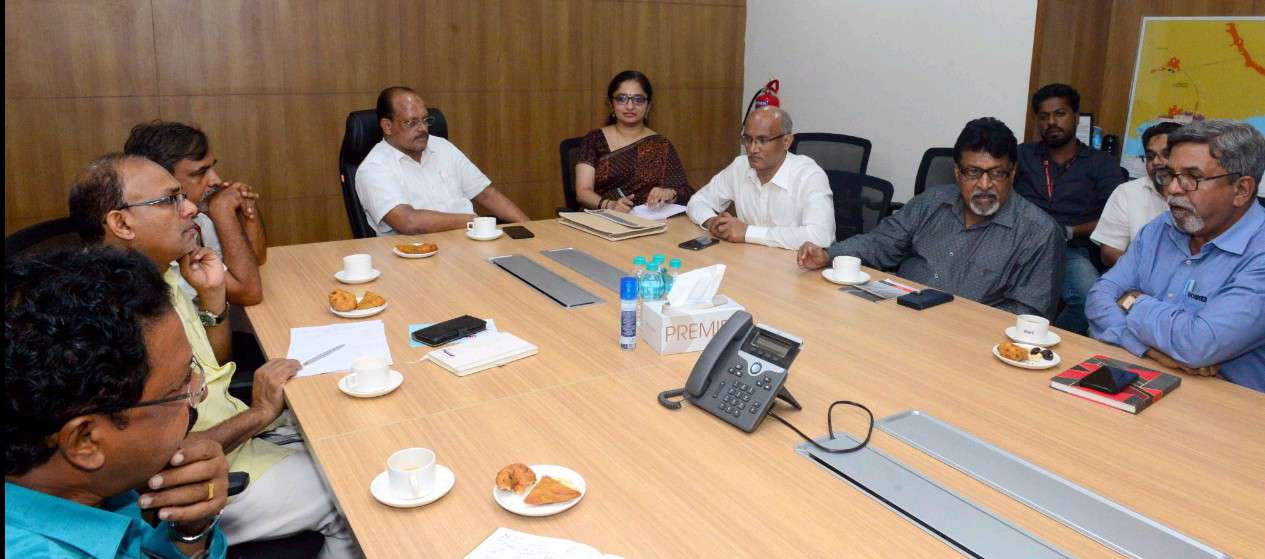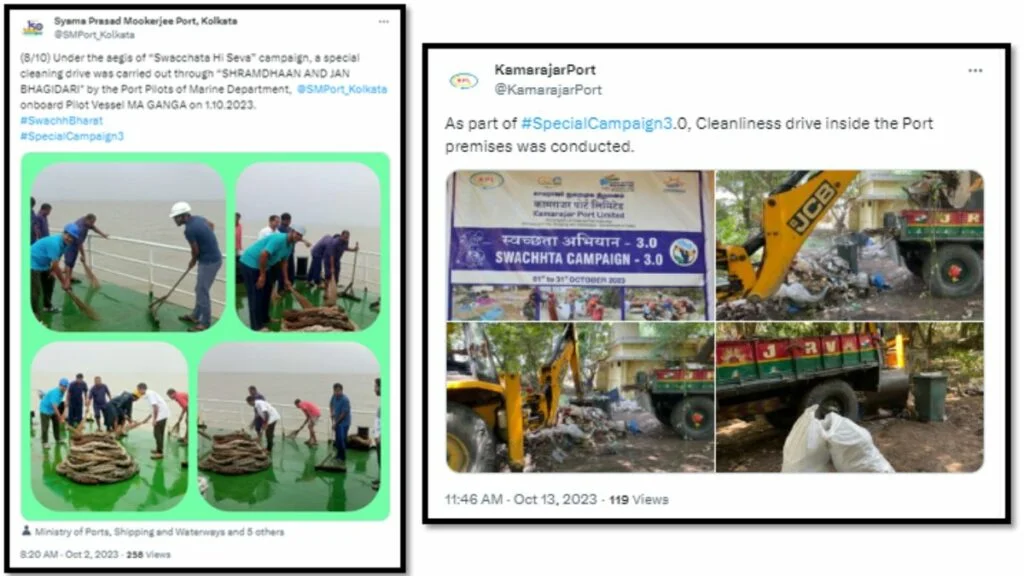Maritime News India : As the global economy undergoes a significant shift, many nations will grapple with the aftermath of recent sovereign defaults. As countries emerge from this turbulent phase, the maritime industry could face a critical liquidity shortfall, affecting operations, investments, and overall growth.
Understanding Sovereign Defaults
Sovereign defaults occur when a government fails to meet its debt obligations, either by missing a payment or restructuring its debt under unfavorable terms. The recent wave of defaults, particularly in emerging markets, will lead to economic instability, currency devaluation, and reduced access to capital. While the end of this wave may signal recovery for these nations, it will bring challenges that could ripple through various sectors, including maritime.
Key Countries, Their Economic Dynamics and Future Impacts
- Argentina:
- Economic Dynamics : Ongoing economic challenges, marked by high inflation and currency devaluation, have hampered investment in shipping infrastructure. As recovery efforts unfold, demand for agricultural exports could rise, necessitating robust maritime logistics.
- Future Impacts : Recovery may boost agricultural exports, but liquidity issues could limit investment in shipping infrastructure.
- Turkey:
-
- Economic Dynamics : With high inflation and currency instability, Turkey’s maritime sector faces challenges in shipping costs and access to financing. Recovery strategies will require international collaboration to modernize port facilities.
- Future Impacts : Economic turmoil may significantly devalue the lira, impacting shipping costs and borrowing for operators.
-
- Ecuador:
-
- Economic Dynamics : A history of defaults has hindered investment in critical port infrastructure. However, renewed focus on oil exports may create opportunities for improving maritime logistics.
- Future Impacts : Limited liquidity may hinder improvements in port facilities essential for oil exports after restructuring debt.
-
- Zambia:
-
- Economic Dynamics : Facing significant debt burdens, Zambia’s mining exports are vital for maritime trade. Economic recovery will depend on investments in logistics to facilitate efficient transportation of resources.
- Future Impacts : Economic uncertainty could disrupt mining exports critical for maritime trade.
-
- Sri Lanka:
-
- Economic Dynamics : After defaulting in 2022, the country seeks assistance from India, China, and the U.S. to stabilize its economy and enhance port operations. Improving maritime infrastructure is critical to address backlog issues and support trade.
- Future Impacts : Stabilization efforts will require support to address logistical backlogs and enhance maritime capabilities.
-
Future Support Dynamics Among Countries
Countries will leverage their economic strengths to support one another during this transitional phase. Here’s how various nations might receive support from multiple countries:
- Sri Lanka:
- India: Technological assistance in port management and logistics.
- China: Investments in infrastructure through the Belt and Road Initiative.
- United States: Financial aid and expertise to modernize shipping logistics.
- European Union: Trade partnerships and funding for sustainable practices.
- Argentina:
- Brazil: Joint shipping ventures to improve logistics.
- United States: Financial assistance in sustainable agricultural shipping.
- Turkey:
- Germany: Engineering assistance to upgrade shipping infrastructure.
- Azerbaijan: Energy partnerships to enhance maritime transport.
- Ecuador:
- Colombia: Coordinated port developments to enhance logistics.
- Peru: Collaboration on shared maritime routes.
- Zambia:
- South Africa: Investment in mining logistics.
- China: Infrastructure projects to boost export capabilities.
The Role of International Organizations
International organizations will have to play a crucial role in stabilizing economies and fostering growth, particularly in countries facing liquidity challenges:
- International Monetary Fund (IMF): Provides financial support and policy advice for stabilization.
- World Bank (WB): Focuses on long-term development projects, including port upgrades.
- Asian Development Bank (ADB): Supports economic development in the Asia-Pacific region.
- International Maritime Organization (IMO): Sets global standards for safety and environmental performance.
- World Trade Organization (WTO): Facilitates trade negotiations to reduce barriers.
- Regional Forums: Promote cooperation and investment in maritime infrastructure.
Corporate Benefits Amidst Challenges
Local corporations will seek to capitalize on these changes, particularly in emerging markets:
- Adani Group (India): Eyeing investments in Sri Lanka to expand its maritime and logistics capabilities.
- Maersk (Denmark): Likely to benefit from increased demand for logistics services in recovering markets.
- CMA CGM (France): Can expand its presence in emerging markets, leveraging expertise in supply chain management.
- Mediterranean Shipping Company (MSC, Switzerland): Will benefit from infrastructure investments, capturing growth in trade volumes.
- Hapag-Lloyd (Germany): Can pursue joint ventures in regions undergoing recovery.
- COSCO Shipping (China): Will look to enhance its investments in infrastructure projects across Asia and Africa.
- Port Authority of New York and New Jersey (USA): May seek opportunities for collaboration in regional maritime projects.
- DP World (UAE): Will continue expanding its port and logistics operations in developing regions.
This trend reflects a broader pattern where local corporations in various countries aim to control maritime operations in neighboring nations, particularly those facing economic challenges.
Who Can Help and How to Overcome Liquidity Challenges
To navigate potential liquidity shortfalls, various stakeholders will play crucial roles:
- Governments: Implement supportive policies, such as tax incentives or grants.
- Financial Institutions: Offer tailored financial products to address maritime needs.
- Industry Associations: Provide guidance and advocacy for the sector.
- Shipping Alliances: Enable resource sharing and cost reduction.
- Technology Providers: Streamline operations and improve cash flow.
- Private Equity and Venture Capital: Inject capital into maritime companies.
Navigating the Future
To mitigate potential liquidity shortfalls, stakeholders in the maritime industry must adopt proactive strategies:
- Diversifying Funding Sources: Explore alternative financing options.
- Enhancing Operational Efficiency: Invest in technology to reduce costs.
- Collaboration and Partnerships: Build strategic alliances to improve resource sharing.
While the end of a wave of sovereign defaults may signal economic recovery for many nations, the maritime industry will need to brace for potential liquidity challenges. By understanding the implications for key countries and leveraging support dynamics, including the assistance of international organizations, maritime companies can adopt strategic measures to navigate this evolving landscape. Corporations like Adani Group and others that proactively adapt to these changes will find significant opportunities for expansion and profitability. In this context, companies like Maersk, CMA CGM, and DP World will also play pivotal roles in shaping the future of maritime trade.
Is There a Scope for Corporate War in the Maritime Industry?
As countries emerge from recent waves of sovereign defaults, the maritime industry is poised for significant changes. This environment could foster a competitive landscape where corporate interests collide, leading to what some might term a “corporate war.” Here’s an exploration of the potential for such conflict and its implications.
Factors Contributing to Corporate Competition
- Resource Scarcity: As nations recover, competition for limited resources, such as shipping routes and port access, may intensify. Companies vying for dominance in key maritime corridors could escalate tensions.
- Geopolitical Interests: National interests often drive corporate strategies. Companies like Adani Group in India and COSCO Shipping in China may engage in aggressive expansion to secure strategic positions, potentially leading to conflicts over influence in neighboring countries.
- Market Consolidation: The maritime sector may see increased mergers and acquisitions as companies seek to enhance their market power. This consolidation could create dominant players that stifle competition and provoke backlash from smaller firms.
- Technological Advancement: As companies invest in new technologies to improve efficiency and reduce costs, competition could lead to aggressive tactics, including intellectual property disputes or predatory pricing.
- Sustainability Pressures: With growing emphasis on environmental standards, companies may compete fiercely to develop greener shipping practices. Those that fall behind may resort to aggressive strategies to catch up, leading to corporate conflicts.
Implications of Corporate War
- Increased Shipping Costs: A competitive environment may lead to rising costs as companies invest heavily in securing their market positions. This could be passed on to consumers, affecting global trade.
- Regulatory Backlash: Heightened competition may attract regulatory scrutiny, leading to potential antitrust actions. Governments could step in to ensure fair practices, further complicating the corporate landscape.
- Innovation Stagnation: While competition can drive innovation, aggressive tactics might lead to a focus on short-term gains over sustainable practices, hindering long-term advancements.
- Supply Chain Disruptions: Conflicts among corporations could result in supply chain disruptions, particularly if companies engage in aggressive tactics to undermine competitors.
- Geopolitical Tensions: Corporate conflicts can spill over into geopolitical tensions, especially if governments are perceived to favor certain corporations or if companies engage in aggressive international maneuvers.
Strategies to Mitigate Corporate Conflict
- Collaboration and Alliances: Companies could focus on strategic partnerships to enhance efficiency and share resources, reducing the likelihood of conflict.
- Transparent Practices: Emphasizing ethical business practices and transparency can help build trust and reduce competitive tensions.
- Regulatory Engagement: Engaging with regulators proactively can help companies navigate the complexities of competition and avoid antitrust issues.
- Focus on Sustainability: Collaborating on sustainability initiatives can foster a sense of shared purpose among corporations, reducing the potential for conflict.
- Technological Sharing: Pooling resources for technological advancements can lead to innovation without the aggressive competition that may cause conflicts.
The potential for a “corporate war” in the maritime industry is influenced by a variety of factors, including resource competition, geopolitical interests, and market consolidation. While such conflicts can have significant implications for the industry and global trade, proactive strategies focused on collaboration, transparency, and sustainability may mitigate tensions. Ultimately, the maritime sector’s future will depend on how corporations navigate these challenges in a rapidly changing landscape.
List of countries that have faced sovereign defaults, along with the reasons and years of their defaults:
- Argentina
- Years: 2001, 2020
- Reasons: Economic mismanagement, high debt levels, and currency devaluation.
- Ecuador
- Years: 2008, 2020
- Reasons: Falling oil prices and high public debt led to economic instability.
- Turkey
- Year: 2018
- Reasons: Currency crisis, high inflation, and significant external debt.
- Zambia
- Year: 2020
- Reasons: Economic mismanagement and a heavy debt burden, especially in foreign currency.
- Sri Lanka
- Year: 2022
- Reasons: Economic crisis exacerbated by the pandemic, high debt levels, and reduced foreign reserves.
- Venezuela
- Years: 2017 onward
- Reasons: Economic collapse due to mismanagement, falling oil prices, and hyperinflation.
- Greece
- Year: 2012
- Reasons: Eurozone crisis, high public debt, and fiscal mismanagement.
- Lebanon
- Year: 2020
- Reasons: Economic collapse, political instability, and a banking crisis.
- Pakistan
- Recent years: Ongoing potential defaults, notably in 2022.
- Reasons: High debt levels, political instability, and balance of payments issues.
- Mozambique
- Year: 2016
- Reasons: Undisclosed debts and mismanagement of public finances.
- Dominican Republic
- Year: 2001
- Reasons: Fiscal mismanagement and a banking crisis.
- El Salvador
- Year: 2001
- Reasons: High public debt and economic instability.
- Iceland
- Year: 2008
- Reasons: Banking collapse during the global financial crisis.
- Suriname
- Year: 2020
- Reasons: Economic mismanagement and high public debt.
- Belarus
- Recent years: Potential default scenarios in 2021-2022.
- Reasons: Economic sanctions, political instability, and currency devaluation.
- Congo (Republic of the Congo)
- Years: Multiple instances in the 1990s and 2000s.
- Reasons: Economic mismanagement and low commodity prices.
- Chad
- Year: 2021
- Reasons: Oil price collapse and heavy public debt.
- Angola
- Recent years: Facing significant debt challenges, particularly since 2020.
- Reasons: Falling oil prices and economic mismanagement.




